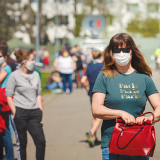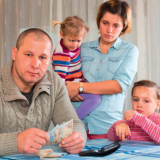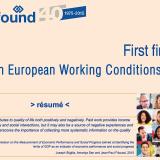EU context
El 26 de abril de 2017 la Comisión presentó el paquete del pilar europeo de derechos sociales. Este incluye una iniciativa para apoyar el equilibrio entre la vida privada y la vida laboral para los progenitores y cuidadores. La iniciativa busca abordar la infrarrepresentación de las mujeres en el mercado laboral, y establece una serie de normas mínimas nuevas o mejoradas para los permisos parentales, de paternidad y para cuidadores.
La labor de Eurofound
Recogida de datos
Las Encuestas europeas sobre la calidad de vida (EQLS) de Eurofound proporcionan comparaciones entre países en lo que respecta a la conciliación del trabajo con la vida privada, las organizaciones flexibles del tiempo de trabajo y la prestación de servicios de asistencia de calidad. Las Encuestas europeas de empresas (ECS) arrojan datos sobre por qué y cómo utilizan las empresas una gran variedad de organizaciones del tiempo de trabajo. Las Encuestas europeas sobre las condiciones de trabajo (EWCS) analizan la organización del tiempo de trabajo en la UE y las cuestiones relacionadas, incluidas las organizaciones flexibles, las preferencias del tiempo de trabajo y el equilibrio entre la vida privada y la laboral.
El Observatorio Europeo de la Vida Laboral (EurWORK) proporciona información sobre las condiciones de trabajo y el trabajo sostenible, incluida una base de datos sobre salarios, el tiempo de trabajo y los conflictos colectivos. Eurofound ha calculado también los costes económicos y sociales de la brecha de género en el empleo, y puede aportar información sobre la creación de empleo en los servicios de asistencia.
Visualización de datos
Destacado: Foundation Focus y las soluciones para el equilibrio entre la vida privada y la vida laboral
23 de diciembre de 2016 - En este número de Foundation Focus se examina la cuestión del equilibrio entre trabajo y vida personal, y algunos de los factores que facilitan o dificultan a los trabajadores la combinación de su actividad laboral con la vida al margen del empleo. Dado que el promedio de horas de trabajo se ha venido reduciendo de manera constante, se plantea la cuestión de si dicho equilibrio sigue siendo importante. ¿En qué puede ayudar la Directiva sobre la ordenación del tiempo de trabajo, y qué papel desempeñan las políticas en materia de horarios laborales flexibles? ¿Qué ayudas concretas requieren aquellos que asumen responsabilidades relativas al cuidado de menores o adultos? El equilibrio entre el trabajo y la vida personal está relacionado con otros aspectos de la vida, como la necesidad de una atención de la infancia de alta calidad, la tarea de abordar la brecha de género en el empleo, y la adopción de disposiciones respecto a los trabajadores de edad avanzada que no pueden continuar desarrollando un trabajo a tiempo completo.
El equilibrio entre el trabajo y la vida personal: crear soluciones para todos






















